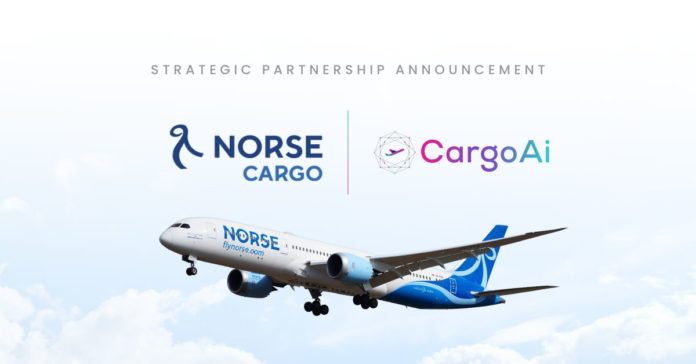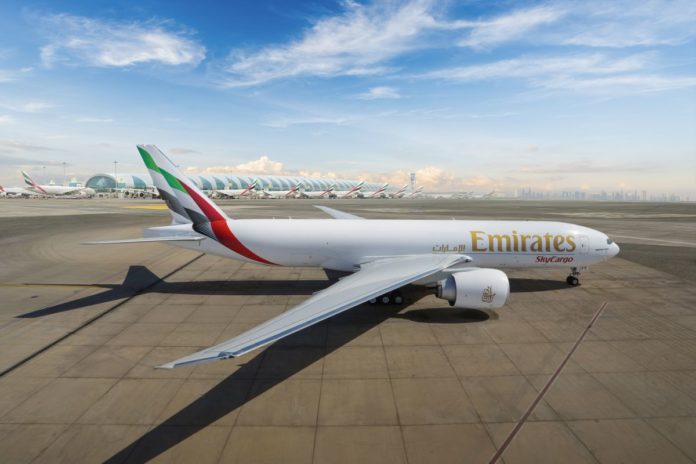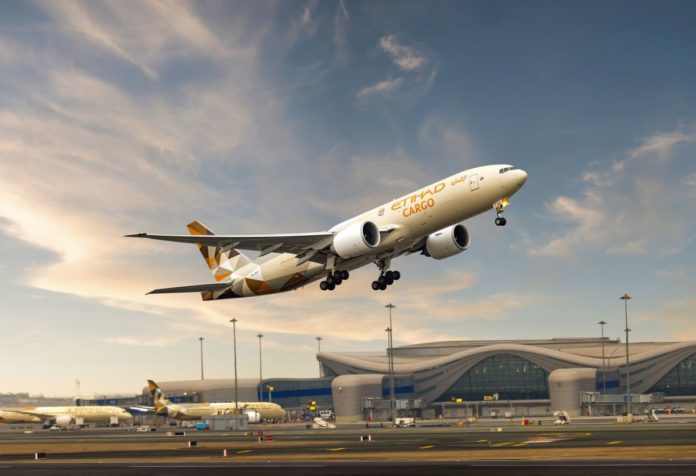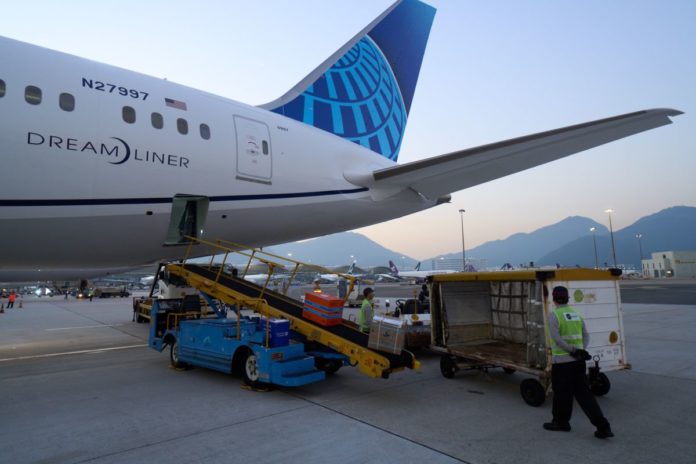Norwegian based transatlantic carrier Norse Atlantic Airways has selected technology firm CargoAi to digitise its cargo operations. It gives over 27,000 forwarders access to its cargo capacity and pricing — via both the CargoAi marketplace and direct connections to transport management systems. Norse Atlantic operates a modern fleet of Boeing 787 Dreamliners on transatlantic routes between Europe and North America.
More Emirates freighters for Indian subcontinent
Emirates SkyCargo is deploying two additional weekly freighters, to Mumbai and Ahmedabad in India. It currently serves India with three weekly freighters – one to Mumbai and two to Ahmedabad – as well as bellyhold capacity in 167 passenger services to nine gateways.
The new freighter service to Mumbai will launch on 4 March 2026, and connect Dubai, Singapore and India, while the Ahmedabad service will be a direct and dedicated freighter, and also launch in March.
The carrier will also deploy a dedicated weekly freighter to Dhaka, Bangladesh, from April 2026.
Emirates SkyCargo has also built a trucking system with over 1,000 vehicles transporting almost 5,500 tonnes of cargo across India. It recently added Coimbatore and Goa to the network.
IAG goes for AOG market
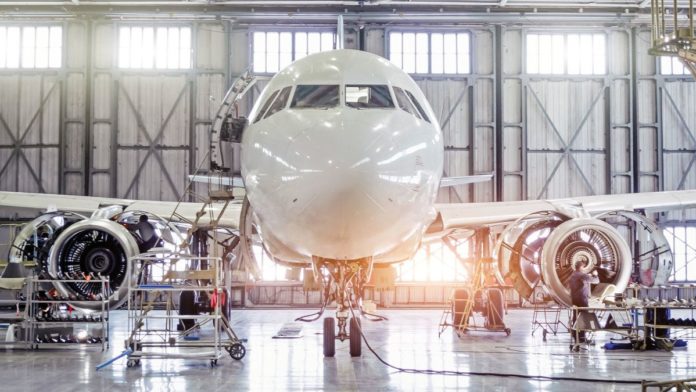
IAG Cargo has launched a dedicated Aircraft on Ground (AOG) service for the urgent transport of aircraft parts.
The service capitalises on IAG’s network of more than 250 destinations and also benefits from its presence near major manufacturing and maintenance hubs in Europe and North America.
Shipments booked through AOG are managed by specialist teams available 24/7 who provide rapid triage and real time updates.
Recent market research valued the AOG logistics sector at US$3.14 billion in 2025 and anticipates this will grow to $4.16 billion by 2032, driven by increasing air traffic, ageing fleets and leaner inventory strategies.
A cat rehoming with a difference
DHL Global Forwarding and DHL Express have helped rescue eight big cats from captivity in Honduras and brought them new lives in the US after a complex international rescue.
The animals – five tigers and three lions – had been living in conditions that, despite the care provided, could not meet their long term species specific needs. Now, following months of recovery and preparation, they have been transported from San Pedro Sula to accredited sanctuaries where they will receive lifelong, specialized care.
Around the world, wildlife experts continue to encounter big cats kept in makeshift zoos, private backyards or improvised attractions but when rescued, they cannot simply be returned to the wild. They need places where they can heal.
For Guru, Sultan, Amir, Deborah, Aira, Cyrus, Zephora and Juancito, the mission was a new beginning.
DHL created a transport plan designed entirely around the animals’ well-being. An isolated section of the airport was secured to give the big cats a quiet, calm environment during loading. Specially certified crates were prepared to reduce noise and stimuli. DHL Express provided a dedicated freighter aircraft for a direct flight to Miami, chosen specifically to reduce stress and shorten travel time. On board, four veterinarians never left the animals’ side.
When the aircraft touched down in Miami, the cats were transferred to two accredited facilities: Carolina Tiger Rescue and Turpentine Creek Wildlife Refuge.
There, they will finally have the chance to stretch, explore, rest in shaded quiet, feel grass beneath their paws, and rediscover behaviors that captivity had denied them.
Mark 3 takes on Tricargo platform
US/UK express specialist Mark 3 International has acquired the Tricargo air cargo sales solution.
Created by the independent, non-profit Federation of Airline General Sales Agents (FEDAGSA), Tricargo will continue to allow freight forwarders to search for airfreight capacity and pass booking requests to general sales and service agents (GSSAs) and airlines.
Mark 3 chief executive Matthew Ware, said: “For too long, the air cargo market has been fractured, making it difficult for freight forwarders to easily access the right airfreight options while GSAs have also found it hard to connect with the right forwarders. Our custodianship of Tricargo will ensure it remains a neutral, trusted space where freight forwarders and GSAs connect to ensure best value for their customers.”
FEDAGSA is a neutral, international, not for profit federation representing GSAs who act as local representatives and sales partners for airlines in various markets worldwide, handling sales, marketing, and providing significant service support.
Mark 3 recently announced a partnership with DPD, new warehousing facilities at New York JFK and soon Los Angeles, and a partnership with New York-based Dobby AI, to develop advanced tools for optimising data management.
General Secretary at FEDAGSA, Glenn Shires, added: “We are very happy to see Mark 3 taking on responsibility for Tricargo, which can be trusted by many GSAs and forwarders around the world. “With Mark 3’s backing, we’re confident Tricargo will deliver a neutral window to enable our members to connect with more freight forwarders who need their services, providing one window to view all options.
“Mark 3 has a proven track record of investing in technologies that deliver value, improve productivity, and meet the challenges of a volatile trading environment.”
Picture: Tima Miroshnichenko
It pays to specialise, says Etihad Cargo
Etihad Cargo said it delivered a strong performance in 2025, increasing revenue by 8% year-on-year while transporting 703,000 tonnes, a 9% rise. It said the results reflect sustained demand across key trade lanes and the continued strength of its specialised product portfolio.
Significant growth was recorded across core verticals. FlyCulture – the transportation of artwork, cultural heritage and museum exhibitions – increased by 89%. LiveAnimals grew 121% year-on-year, supported by specialised handling expertise. PharmaLife expanded by 22% and the luxury vehicle service, FlightValet saw a 174% increase.
With its partnership with SF Airlines, Etihad Cargo became the largest cargo operator between mainland China and the Middle East.
Etihad Cargo achieved a Delivered As Promised rate of 88% alongside an On-Time Performance (OTP) of 81%,.
It expanded freighter services across key global hubs, including Shenzhen, Ezhou, Hong Kong, Riyadh, Paris, and Frankfurt, alongside new deployments from Phnom Penh and East Midlands. It also secured dedicated Boeing 777 freighter capacity operated by Atlas Air, bringing its total freighter fleet to six aircraft.
Kale’s piece offering keeps track of e-commerce shipments
Kale Logistics Solutions has launched AvSys, a cross-border e-commerce platform to help airlines, retailers, shippers or consignees manage individual or high-volume parcel shipments. It enables piece-level tracking for either individual or consolidated air cargo shipments, allowing them to monitor orders and adhere to customs requirements.
The platform also supports end-to-end operations, with a focus on the middle mile, including first-mile and last-mile visibility, addressing a critical gap in e-commerce logistics.
Kale chief executive, Amar More, said: “The rise of e-commerce has created a need for modern piece-level parcel logistics that traditional airline air waybill-based systems alone cannot support. Legacy infrastructure was not built for the speed, scale, and transparency that e-commerce shippers now expect, it was based on a kilo-based system, not a piece level system that offers end to end control and transparency.
The platform is designed to enable airlines to offer and operate e-commerce-ready services, maximising the airlines point to point direct services without relying on costly extensive hub-and-spoke networks.
The launch follows Kale’s acquisition of AVLOG Systems, a specialist express and e-commerce logistics technology provider.
Trump’s import surcharge disappoints forwarders
The AirForwarders Association (AfA) says it is disappointed by President Trump’s decision to impose a temporary 10% surcharge on imports, and called on policymakers to prioritize stable, predictable trade policies that support business.
It said that the decision by the White House to impose broad tariffs risks increasing uncertainty.
AfA said its members were already having to manage fluctuating volumes, pricing pressures, and complex compliance requirements, and the introduction of a sweeping tariff measure without clear guidance creates further operational disruption which will ripple across the supply chain.
Air cargo and logistics businesses plan months in advance, commit capacity based on forecast demand, and operate on tight margins, and abrupt policy interventions undermine long term planning and investment.
At a time of growing geopolitical instability, including the continued military build-up in the Middle East, policy uncertainty at home only heightens risk for importers, exporters, and the logistics providers that support them.
AfA urged the Administration and Congress to prioritize consistent, transparent trade frameworks that strengthen U.S. economic competitiveness, support growth, and provide businesses with the certainty they need to operate effectively.
Earlier, the AfA had welcomed the US Supreme Court’s striking down of President Donald Trump’s global tariffs on 20 February, saying that it should bring a degree of clarity for US international traders.
Private jets turbocharge ACS growth
Air Charter Service turnover increased 10.3% to US$ 1.34 billion in 2025, although its cargo charter division saw only a modest rise. Most of the increase was due to 19.1% growth in private jet revenue.
Chairman Chris Leach, said: “Our Cargo charter division saw a modest increase, with revenues up and growth year-on-year above the industry average, as well as flight numbers increasing. However, despite the backdrop of tariff uncertainty causing industry disruption for much of the year, our Time Critical division saw incredible growth, with revenue up by 76% and jobs increasing by 92%, with huge strides made in onboard courier (OBC) and next flight out (NFO) sales under the new leadership team.”
Six new offices opened in 2025, including the broker’s first in Saudi Arabia and Italy.
Etihad launches airfreight industry’s first training hub
Etihad Cargo has launched what it believes is the airfreight industry’s first logistics training academy by an airline.
The Etihad Cargo Excellence Hub aims to ensure consistent operational, safety and compliance standards across its global partner network. As regulatory complexity increases and networks expand, structured capability development is critical to maintaining reliability and customer trust.
The platform provides mandatory and elective training for Etihad Cargo representatives and stakeholders worldwide. The curriculum includes operating standards, products and service framework, safety and compliance modules aligned with international regulations, industry-certified programmes delivered with accredited institutions and targeted soft skills training to strengthen customer engagement.
Chief cargo officer Stanislas Brun said: “The Etihad Cargo Excellence Hub ensures our global partners operate to the same safety, compliance and service standards. As we grow, consistency becomes a competitive advantage. This initiative protects our brand, strengthens performance discipline and directly supports the customer experience we commit to deliver.”








